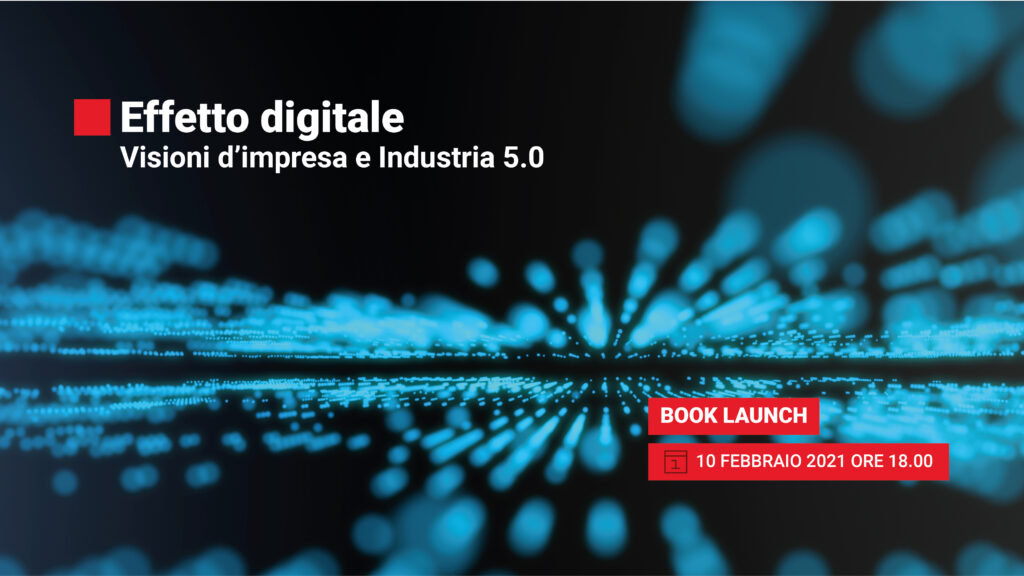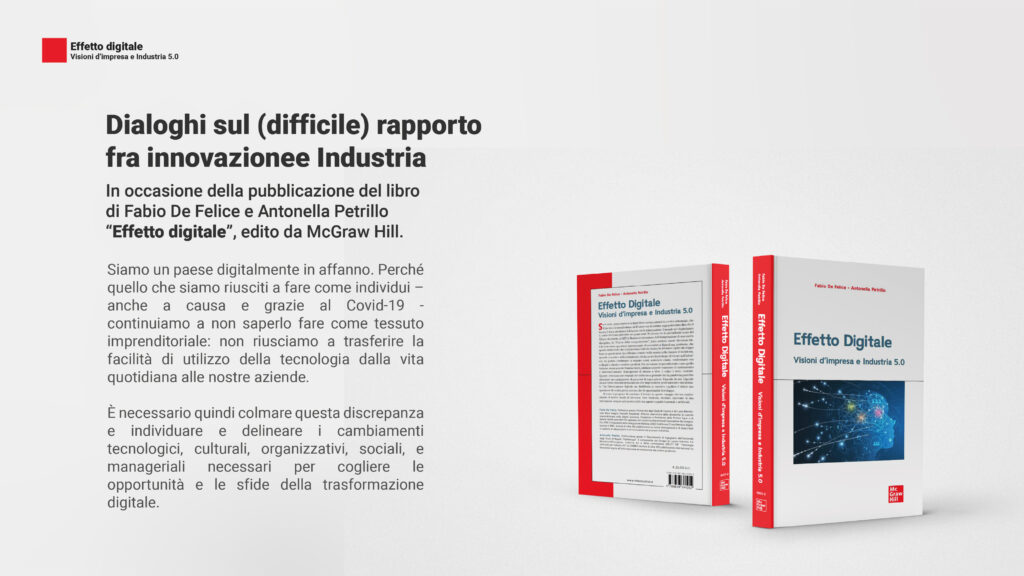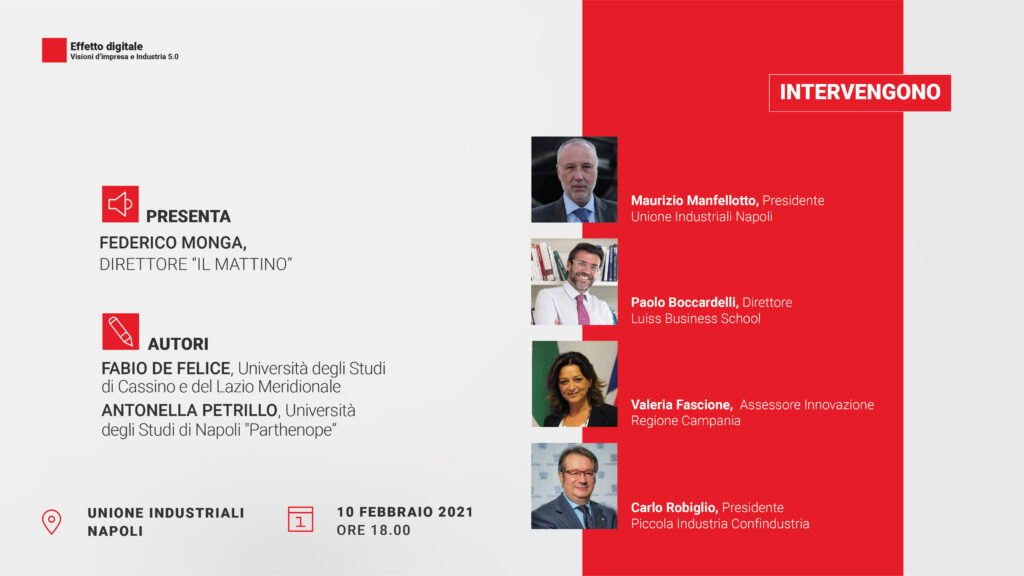
The presentation on Feb. 10 at 6 p.m. at the Industrial Union of Naples
Identifying and delineating the technological, cultural, organizational, social, and managerial changes underlying the ongoing digital transformation, this is the goal that animates Fabio De Felice and Antonella Petrillo‘s new book, “Effetto digitale. Visioni di impresa e Industria 5.0”, edito da McGraw-Hill. Seven chapters in which, through analyses and comparisons with some of the protagonists of the radical changes that have affected the way we work, produce and share value, and our very existence, we discuss Industry 5.0, Enabling Technologies, Artificial Intelligence, Quantum Computing, Robotics and the Bioeconomy as well as the impacts of the new forms of work organization on the social level, from the need to reform training paths to the dangers of new forms of authoritarianism and social inequality.
That these issues are not the exclusive preserve of scientists or philosophers, but, rather, that these are topics that affect us all closely, we have understood all too well in recent months. THE attempt of the proposed text is precisely to combine technical aspects related to technology with depictions and visualizations of digital-related changes that affect our daily lives and the transformation of the world around us.
The book will be presented on Feb. 10 at 6 p.m. at the Industrial Union of Naples.
Together with the authors, Maurizio Manfellotto, President Unione Industriali di Napoli, Paolo Boccardelli, Director Luiss Business School, Valeria Fascione, Councillor for Innovation and Start up of the Campania Region, Roberto Pieraccini, Engineering Director Google, Carlo Robiglio, President Piccola Industria Confindustria, will speak.
Presented by Federico Monga, editor of Il Mattino
“Today,” emphasizes Fabio De Felice, president and founder of Protom and professor of Industrial Plant Engineering at the University of Cassino -we are witnessing humanity’s greatest migration from physical Newtonian space, to digital space. We experienced this on our skin during the lockdown, when with schools and offices closed, only those privileged to live in the “digital sphere” were able to continue taking courses, taking exams, dealing with colleagues, customers and selling products. Therefore, that digital innovation be widely distributed is a matter of civilization before it is a matter of development opportunity. I am convinced that today Italy has a great opportunity to seize to project itself towards Industry 5.0. Industry that sees a complete interpenetration between the physical digital and biological worlds. It depends on us. It depends on our cultural change as citizens even before entrepreneurs, professionals and intellectuals.”
Alongside analyses of major technologies, their impact on production processes and the organization of work, the book is enriched with interviews with some of the key players in the ongoing revolution. Interviewed were: Alberto Baban (Venetwork/Confindustria), Luca Moschini (Laminazione Sottile), Paolo Boccardelli (LUISS), Roberto Pieraccini (Google), Enrico Pandian (frescofrigo), Marco Celani (Italianway), Maurizio Giubilato (Flexsim), Nicolò Nicolosi(Festo), Bruno Siciliano (Federico II University), Silvia Bordin (InfiniteArea), John Saaty (Decision Lens), Maria Umar (Women’s Digital League).

